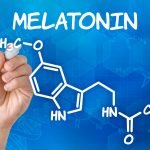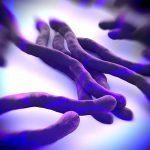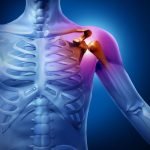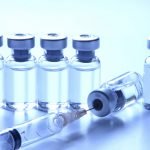Silicone Breast Implants May Cause Cell Death
Node Smith, ND
Silicone molecules from breast implants can initiate processes in human cells that lead to cell death. Researchers from Radboud University have demonstrated this in a new study that will be published on 12 June in Scientific Reports. “However, there are still many questions about what this could mean for the health effects of silicone breast implants. More research is therefore urgently needed,” says Ger Pruijn, professor of Biomolecular Chemistry at Radboud University.
Death of a cell by silicone breast implant molecules
The possible side effects of silicone breast implants have been debated for decades. There are known cases where the implants have led to severe fatigue, fever, muscle and joint aches, and concentration disturbance. However, there is as yet no scientific study demonstrating the effect silicone molecules can have on human cells that could explain these side effects.
Silicone in the body & what effect might silicone molecules have on cells exposed to it?
It is a known fact that breast implants ‘bleed’, i.e. silicone molecules from the implant pass through the shell and enter the body. Earlier research, in 2016, by Dr Rita Kappel, plastic surgeon, and Radboud university medical center, found that silicone molecules can then migrate through the body via the bloodstream or lymphatic system. The biochemists at Radboud University next asked themselves the follow-up question: what effect might silicone molecules have on cells exposed to it?
Cultured cells
Experiments with cultured cells showed that silicones appeared to initiate molecular processes that lead to cell death. “We observed similarities with molecular processes related to programmed cell death, a natural process called apoptosis that has an important function in clearing cells in our body. This effect appeared to depend on the dose of silicone and the size of the silicone molecules. The smaller the molecule, the stronger the effect,” according to Pruijn.
To investigate the effect of silicones on human cells, the researchers have added small silicone molecules — which also occur in silicone breast implants — to three different types of cultured human cells. “One cell was more sensitive to the effect of silicones than the other two cell types. This suggests that the sensitivity of human cells to silicones varies.”
Open questions
The effects the researchers have found lead to many new questions. “We observed that silicones induce molecular changes in cells, but we don’t know yet whether these changes could, for example, lead to an autoimmune response, which could in part explain the negative side effects of implants,” says Pruijn.
“Caution is advised with drawing conclusions based on these findings because we used cultured cells in our research, not specific human cells such as brain cells or muscle cells. Further research is required to get more clarity.”
1. Carla Onnekink, Rita M. Kappel, Wilbert C. Boelens, Ger J. M. Pruijn. Low molecular weight silicones induce cell death in cultured cells. Scientific Reports, 2020; 10 (1) DOI: 10.1038/s41598-020-66666-7

Node Smith, ND, is a naturopathic physician in Humboldt, Saskatchewan and associate editor and continuing education director for NDNR. His mission is serving relationships that support the process of transformation, and that ultimately lead to healthier people, businesses and communities. His primary therapeutic tools include counselling, homeopathy, diet and the use of cold water combined with exercise. Node considers health to be a reflection of the relationships a person or a business has with themselves, with God and with those around them. In order to cure disease and to heal, these relationships must be specifically considered. Node has worked intimately with many groups and organizations within the naturopathic profession, and helped found the non-profit, Association for Naturopathic Revitalization (ANR), which works to promote and facilitate experiential education in vitalism.










